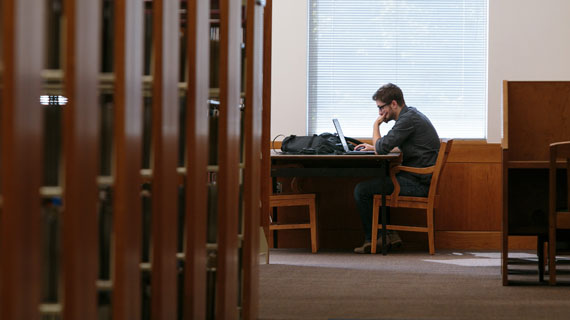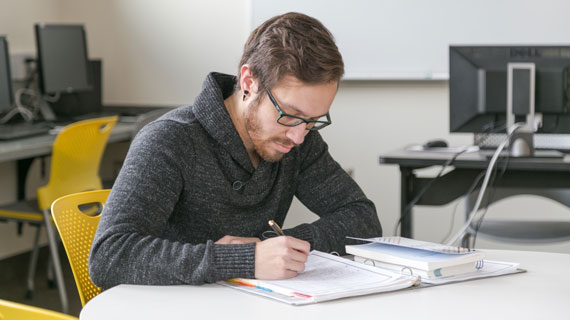How Can I Improve My Learning in College?
Posted: January 28, 2020 | Author: Kierstin Pitcher-Holloway | Read Time: 3 minutes
 College classes are known for their higher standards in testing and increased difficulty in curriculum. In order to stay on top of the rigorous coursework, students are expected to take personal responsibility for their education.
College classes are known for their higher standards in testing and increased difficulty in curriculum. In order to stay on top of the rigorous coursework, students are expected to take personal responsibility for their education.
Eventually most students figure out what study techniques work for them and which ones don’t. However, having a diverse skill set to apply to different classes can save students time and frustration by allowing them to work smarter not harder.
Learning styles and the techniques associated with them are widely varied. Visual and auditory learning styles are the most well known, but the theory of a person being one learning style or another is outdated and inaccurate.
“Further research has actually shown that you’re not one or the other,” said Toni Sage director of academic success at Southern Utah University. “While we have preferences or strengths, we really use all of the different modalities. Subsequently, using a variety of techniques is helpful."
Every student’s learning style is as unique as they are so there will still be some trial and error as students practice, but the work is worth it.
“Even if you think you have a perfect system set up to try something new,” said Paige Thatcher, tutoring support specialist. “Because you might be missing a piece of the puzzle.”
Tips for learning better in class:
1. No phone.
Phones act as a huge distraction. If you want to retain anything from your time in class, then don’t try and listen while scrolling through your feed.
2. Listen to the professor closely.
It helps to pay attention to details. Make note of things professors emphasize with tone of voice and emphasize with non-verbal cues like tapping or circling a specific term on the board.
3. Take notes.
Taking notes will help with retention and comprehension. Writing these notes instead of typing them will also help with the processing of information.
4. Come back to your notes and review them or even rewrite them.
“The process of rewriting them really strengthens that memory, especially within 24 hrs,” said Sage. “Add detail where needed or condense where you can. You will remember FAR more within that 24hr period than even 48 hrs.”
When it comes to studying at home, Thatcher recommends students engage all the senses with the following tips.
1. Recite new concepts in your own words.
Talking to other people about what your learning is a great way to do this. Organizing a study group can help with this.
2. Go for a walk.
Take study breaks to process information while going for a short walk outside, or carry materials with you and try studying in different locations.
3. Create Visuals.
Convert reading or class notes into tables, charts or graphs. Create flashcards.
Another popular study tactic is listening to music. It can be helpful in restoring energy, but Sage warns students that liking music doesn't necessarily mean it will help you study.
“Sometimes it can be a real distraction for people, but if it works for you, that’s great,” said Sage. “We just have to self-monitor sometimes to see if it will work.”
For additional tips or help with their studies, students can visit the Tutoring Center at SUU. The student tutors have received top grades in their courses and bring experience, expertise, and enthusiasm to learning.
This article was published more than 3 years ago and might contain outdated information or broken links. As a result, its accuracy cannot be guaranteed.
Tags: Student



